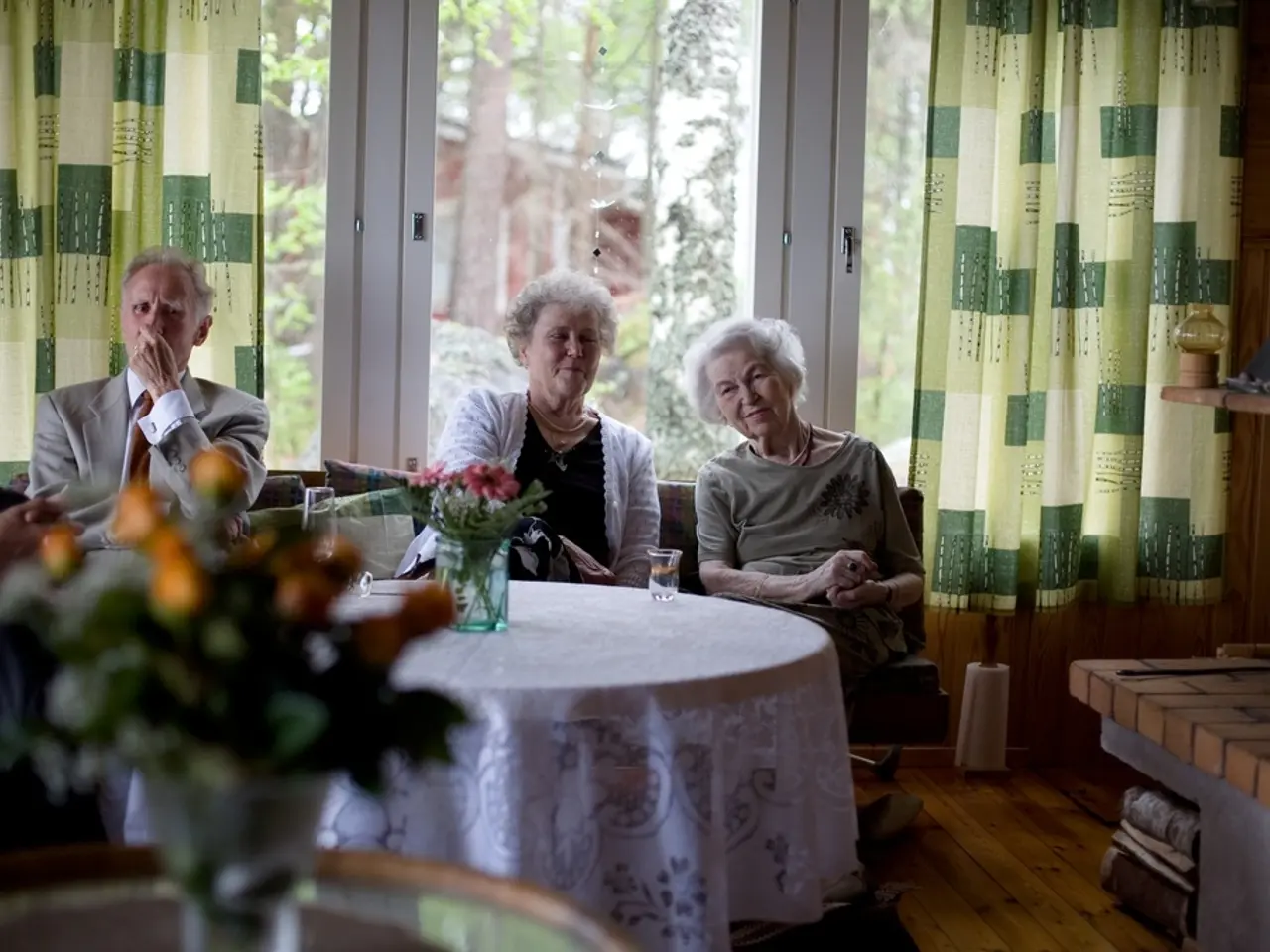Discussion Points for Addressing a Loved One's Cognitive Decline
In the journey of caring for an aging loved one, it's essential to approach memory issues with empathy and understanding. If you suspect that your loved one may be experiencing memory loss or other signs of dementia, setting a gentle and compassionate tone can help them feel more comfortable.
A geriatrician, a specialist in caring for older adults with complex medical needs, can provide valuable assistance in this situation. Geriatric medicine physician Ardeshir Hashmi, MD, suggests that it's time to talk with an aging specialist.
If a geriatrician suspects dementia, they will help assemble a team of healthcare providers and other professionals to provide care and create a treatment plan. Early intervention is critical to preserving memory and independence, according to Dr. Hashmi.
Early signs of dementia include short-term memory loss, changes in mood or behavior, getting lost in familiar places, increased confusion, and changes related to spatial awareness. A geriatrician's evaluation may include memory exercises, blood tests for vitamin D deficiency and thyroid levels, and an MRI if needed.
Providing reassurance about the possibilities can help alleviate fear of Alzheimer's disease or dementia. Emphasizing prevention can encourage the loved one to see a geriatrician. Prevention is the key word in successful aging, and geriatricians specialize in preventing diseases in older people.
Caregivers should also learn more about their loved one's diagnosis, connect with others, redirect them, practice patience, lose arguments, take care of themselves, and remember it's not their loved one's fault. Resources for caregivers include national nonprofit organizations like the Alzheimer's Association, Benjamin Rose Institute on Aging, and local aging-related organizations.
When initiating a conversation about memory issues, choose a calm, quiet time and approach the topic gently by focusing on specific behaviors you have noticed rather than labels like "dementia." Use "I" statements to express your observations and feelings, such as "I’ve noticed you’ve seemed more forgetful lately, and I just wanted to talk about it with you. Have you noticed that too?"
Key communication tips include speaking slowly with clear, short sentences, showing empathy consistently, and being prepared for a range of emotional reactions like denial or fear. The goal is not to diagnose but to express concern, offer support, and open the door to further help. Inviting them to be part of decision-making and framing next steps as shared choices can empower your loved one and foster trust.
If they resist or deny the issues, it might help to introduce support gradually and focus on practical help rather than directly labeling symptoms. This approach can ease them into accepting needed care while preserving their dignity and independence.
Remember, it's crucial to emphasize your love, patience, and willingness to listen to encourage an ongoing, compassionate conversation. Making brain-healthy lifestyle changes, such as aerobic exercise, socialization, a healthy diet, quality sleep, and finding a sense of purpose, can also improve memory. Seeing a geriatrician can help preserve memory, promote healthy aging, and improve quality of life.




